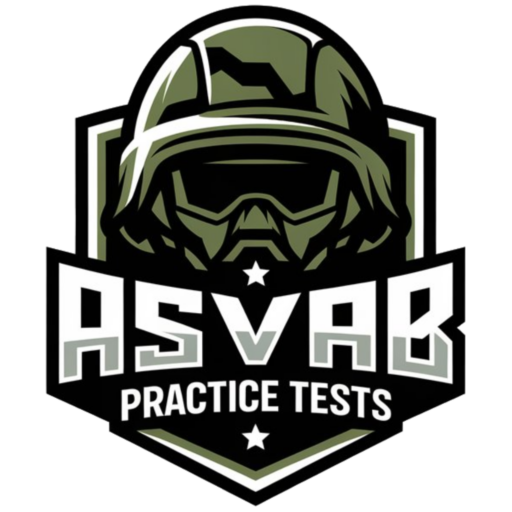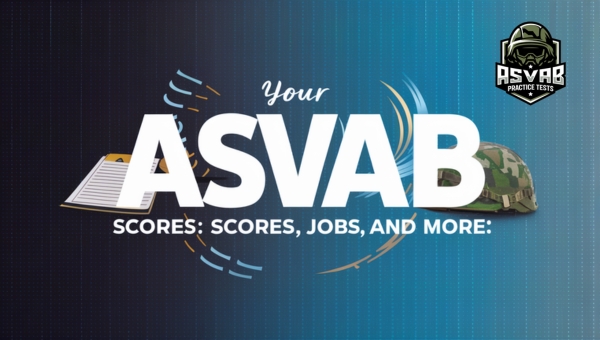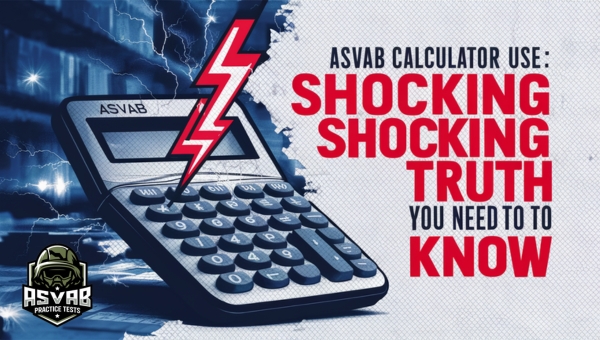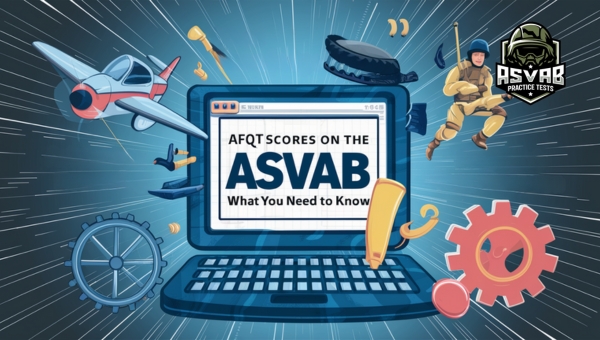Is the ASVAB Hard? Tips & Insights
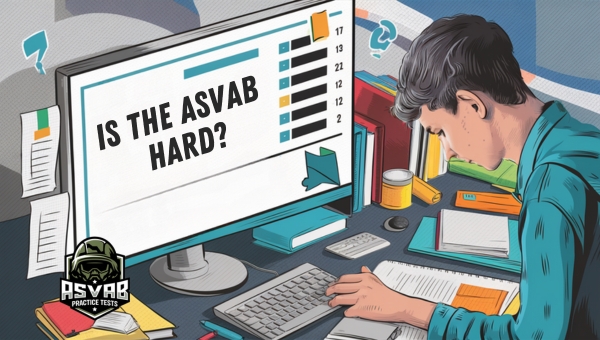
Wondering “Is the ASVAB Hard?” Whether you’re gearing up for a military career or just curious, this article will guide you through everything you need to know. From understanding the test structure and factors influencing its difficulty to strategies for making it easier, we’ve got it all.
You’ll learn how the ASVAB compares to other standardized tests and get a detailed breakdown of its sections. Plus, discover tips to manage test anxiety and improve your performance. Dive in to demystify the ASVAB and boost your confidence!
Understanding the ASVAB Test
The Armed Services Vocational Aptitude Battery (ASVAB) is a multifaceted test used by the U.S. military to assess the skills and abilities of candidates. It’s not just about academic knowledge; it also evaluates technical and practical skills.
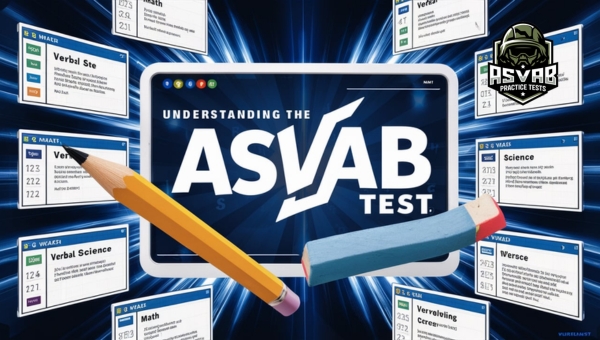
The ASVAB helps determine eligibility for enlistment and identifies suitable military career paths. To understand how challenging the ASVAB might be, several factors come into play. Let’s dive into what can make the ASVAB feel difficult and how the scoring system works.
How ASVAB Scores are Calculated?
Understanding how ASVAB scores are calculated is essential for setting realistic goals and expectations:
- Percentile Score: The ASVAB uses a percentile scoring system. Your score indicates how you performed relative to a reference group. For example, a score of 60 means you did better than 60% of the people in the reference group.
- Composite Scores: The ASVAB consists of multiple subtests. The scores from these subtests are combined to create composite scores, which are used to qualify for specific military jobs. Different branches of the military have different score requirements for various roles.
- AFQT Score: The Armed Forces Qualification Test (AFQT) score is derived from four subtests: Arithmetic Reasoning, Word Knowledge, Paragraph Comprehension, and Mathematics Knowledge. This score determines your overall eligibility for enlistment.
- Job Qualification: Each military job has its own required composite scores. Higher scores can qualify you for a wider range of roles. Knowing the score requirements for your desired position can help you focus your preparation efforts.
- Relative Performance: It’s important to note that ASVAB scores are not absolute measures of intelligence or ability. They reflect how well you did compared to others, which means your score is a relative assessment.
By understanding these factors and the scoring system, you can better navigate the ASVAB and aim for the scores needed to reach your career goals in the military.
Also Read: Marines ASVAB Success – Essential Practice Tests Guide
How Hard is the ASVAB Compared to Other Standardized Tests?
When considering the difficulty of the ASVAB, it’s essential to compare it to other well-known standardized tests like the SAT and ACT. Each of these tests has its own format, subject matter, and level of difficulty, which can give us a clearer picture of where the ASVAB stands.
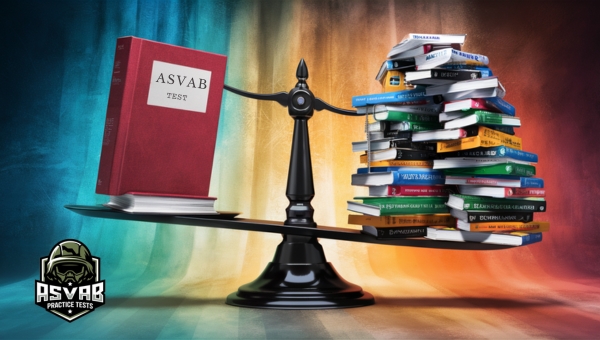
Comparing ASVAB to the SAT and ACT
The ASVAB, SAT, and ACT each serve different purposes and thus have distinct differences:
- Purpose: The ASVAB is used for military enlistment and career placement, while the SAT and ACT are primarily for college admissions.
- Subjects: The SAT and ACT focus on academic subjects such as math, reading, and writing. The ASVAB covers a broader range of topics, including technical areas like electronics and mechanical comprehension.
- Format: The SAT and ACT mainly feature multiple-choice questions, whereas the ASVAB includes a mix of question types that assess both academic and practical skills.
- Scoring: The ASVAB uses a percentile system to compare test-takers to a reference group, whereas the SAT and ACT scores are based on a fixed scale.
ASVAB’s Unique Content
The ASVAB stands out due to its unique blend of academic, technical, and practical questions:
- Academic Sections: Similar to the SAT and ACT, the ASVAB includes sections on math and verbal skills.
- Technical Sections: The ASVAB also tests knowledge in areas like auto and shop information, mechanical comprehension, and electronics.
- Practical Questions: Some questions assess practical skills and knowledge that are particularly relevant to military tasks and occupations.
This mix makes the ASVAB distinct and can be challenging for those unfamiliar with technical subjects.
Test-Taker Experiences
Insights from individuals who have taken the ASVAB reveal a range of experiences:
- Varied Backgrounds: Those with strong academic backgrounds might find the technical sections more difficult, while individuals with practical experience might breeze through those parts but struggle with academic sections.
- Preparation Level: Test-takers who prepared thoroughly often found the ASVAB manageable, whereas those who did not prepare found it more challenging.
- Perception of Difficulty: Some found the ASVAB easier than the SAT or ACT due to its practical questions, while others found it harder due to the breadth of subjects covered.
Understanding these perspectives can help future test-takers better prepare and set realistic expectations.
Also Read: Navy ASVAB Practice Test: Ace Your Exam with Confidence
Strategies to Make the ASVAB Easier
Preparing for the ASVAB can be a challenging task, but with the right strategies and dedication, you can make the process easier and more manageable. Here are some comprehensive strategies to help you excel:

a.) Familiarize Yourself with the Test Format and Content
Understanding the structure of the ASVAB is the first step toward effective preparation:
- Review the Sections: The ASVAB consists of multiple subtests, including Arithmetic Reasoning, Word Knowledge, Paragraph Comprehension, and more.
- Know the Time Limits: Each section has its own time limit. Familiarize yourself with these to manage your time better during the test.
- Study the Question Types: Knowing the types of questions that appear in each section can reduce surprises on test day.
b.) Identify Your Strengths and Weaknesses
Assessing your skills can help you focus your study efforts:
- Take Practice Tests: These can highlight areas where you excel and areas that need improvement.
- Analyze Your Results: Look at which sections you scored lower in and prioritize studying those topics.
- Set Goals: Create specific, measurable goals for improvement in your weaker areas.
c.) Create a Study Schedule
Consistency is key to effective preparation:
- Develop a Routine: Set aside dedicated study times each day or week.
- Use a Planner: Keep track of what subjects you will study and when.
- Be Realistic: Ensure your schedule is manageable and includes breaks to avoid burnout.
d.) Utilize a Variety of Study Materials
Different resources can provide varied perspectives and explanations:
- Official ASVAB Practice Tests: These are designed to mimic the actual test format and difficulty.
- Study Guides: Books and online guides can offer comprehensive reviews of each test section.
- Online Resources: Websites and apps can provide interactive learning experiences and additional practice questions.
e.) Practice Time Management
Effective time management can prevent feeling rushed and overwhelmed:
- Simulate Test Conditions: Take practice tests under timed conditions to get used to the pace.
- Work on Pacing: Learn to balance speed and accuracy. If a question is too difficult, move on and come back if time permits.
- Use Timers: During practice sessions, set timers for each section to train yourself in adhering to time limits.
f.) Stay Focused and Motivated
Keeping your end goal in mind can help maintain motivation:
- Visualize Success: Think about your future career and how passing the ASVAB will help you achieve it.
- Reward Yourself: Give yourself small rewards for reaching study milestones.
- Stay Positive: Maintain a positive attitude and remind yourself of your progress.
g.) Take Care of Your Health
A healthy body supports a sharp mind:
- Get Enough Sleep: Aim for 7-9 hours of sleep per night to ensure your brain functions optimally.
- Eat Nutritious Meals: A balanced diet can improve concentration and energy levels.
- Exercise Regularly: Physical activity can reduce stress and improve cognitive function.
h.) Seek Support When Needed
Don’t hesitate to ask for help if you’re struggling:
- Join Study Groups: Collaborate with others preparing for the ASVAB. This can provide motivation and different perspectives on difficult topics.
- Hire a Tutor: If you’re struggling with specific sections, a tutor can provide personalized guidance.
- Ask Questions: Don’t be afraid to reach out to teachers or peers when you need clarification on a topic.
By integrating these strategies into your study routine, you can make the ASVAB preparation process more effective and less daunting. With consistent effort and the right approach, achieving a high score is within your reach.
Breaking Down ASVAB Sections and Their Difficulty
Understanding the different sections of the ASVAB can help you better prepare and know what to expect. Each section presents unique challenges, but with proper preparation, you can tackle them effectively.
Arithmetic Reasoning and Math Knowledge
The math sections of the ASVAB, specifically Arithmetic Reasoning and Math Knowledge, can be quite challenging for many test-takers. These sections assess your ability to solve basic arithmetic problems and understand mathematical concepts.
Some key points to consider:
- Arithmetic Reasoning: This section focuses on word problems that require you to apply mathematical concepts to real-world scenarios. You will need to recognize relevant information, set up equations, and solve them accurately.
- Math Knowledge: This part tests your understanding of high school-level math, including algebra and geometry. You’ll encounter questions that require knowledge of formulas, operations, and problem-solving techniques.
For those who have not practiced math regularly, these sections can seem daunting. To prepare, consider the following steps:
- Review Basic Math Concepts: Brush up on fundamental arithmetic, algebra, and geometry concepts.
- Practice Word Problems: Work on solving various word problems to enhance your reasoning skills.
- Take Practice Tests: Familiarize yourself with the types of questions you will face and practice managing your time effectively.
Word Knowledge and Paragraph Comprehension
The Word Knowledge and Paragraph Comprehension sections of the ASVAB evaluate your ability to understand and use language effectively. These sections can be difficult for those with limited reading experience.
Here’s what you need to know:
- Word Knowledge: This part tests your vocabulary and ability to understand the meaning of words in context. You will encounter questions that ask you to identify synonyms or the meaning of a word based on its usage in a sentence.
- Paragraph Comprehension: This section assesses your ability to read and understand written material. You’ll be asked to read passages and answer questions about the main ideas, details, and inferences.
To prepare for these sections, consider the following strategies:
- Expand Your Vocabulary: Read widely and make a habit of learning new words. Use flashcards or apps to reinforce your vocabulary.
- Practice Reading Comprehension: Read various types of texts, such as articles, essays, and reports. Practice summarizing the main ideas and identifying key details.
- Take Sample Tests: Familiarize yourself with the format of the questions and practice answering them within the time limits.
General Science and Mechanical Comprehension
The General Science and Mechanical Comprehension sections of the ASVAB test your understanding of scientific principles and mechanical concepts.
These sections can be particularly challenging for those without a background in science or mechanics.
- General Science: This part covers basic concepts in physical and biological sciences. Topics include biology, chemistry, physics, and earth science. You’ll need to understand scientific processes, terminology, and principles.
- Mechanical Comprehension: This section assesses your knowledge of mechanical and physical principles. Questions may involve understanding how machines work, principles of motion and energy, and the properties of materials.
To excel in these sections, follow these preparation tips:
- Review High School Science: Study the basics of biology, chemistry, physics, and earth science. Focus on key concepts and terminology.
- Study Mechanical Principles: Learn about simple machines, forces, energy, and other mechanical concepts. Use diagrams and practical examples to enhance your understanding.
- Use Practice Resources: Take advantage of practice tests and study guides specifically designed for the ASVAB. These resources can help you become familiar with the types of questions and improve your problem-solving skills.
By focusing on these preparation strategies, you can improve your performance in each section of the ASVAB and increase your overall score. Good luck!
Tips to Overcome ASVAB Test Anxiety
Feeling nervous about the ASVAB is normal, but there are ways to manage this anxiety effectively. Here, we’ll explore methods to build confidence, manage stress on test day, and handle your time during the exam.
Building Confidence Through Practice
Consistent practice is a proven way to build confidence and reduce test anxiety. By familiarizing yourself with the test format and questions, you’ll be more comfortable when test day arrives. Here’s how to build confidence:
- Take Regular Practice Tests: Simulate the test environment by taking practice exams under timed conditions. This helps you get used to the pressure and pacing of the actual test.
- Review Mistakes: After each practice test, go over the incorrect answers to understand where you went wrong. This helps reinforce learning and prevent similar mistakes in the future.
- Set Achievable Goals: Break your study schedule into manageable chunks. Set small, achievable goals to keep yourself motivated and track your progress.
Managing Test-Day Stress
Stress on test day can impact your performance, but there are strategies to stay calm and focused:
- Prepare the Night Before: Ensure you have all necessary materials ready, such as identification, test confirmation, and any allowed supplies. This reduces last-minute panic.
- Get a Good Night’s Sleep: Aim for at least 7-8 hours of sleep before the test day. Being well-rested helps improve concentration and cognitive function.
- Eat a Balanced Breakfast: A healthy meal can provide the energy and focus needed to perform well. Avoid heavy or sugary foods that might cause a crash later.
- Arrive Early: Give yourself plenty of time to get to the test center to avoid any rush or unexpected delays. Arriving early allows you to settle in and relax.
- Practice Deep Breathing: Deep breathing exercises can help calm your nerves. Take a few deep breaths before and during the test to stay centered.
- Stay Positive: Maintain a positive mindset. Remind yourself of the preparation you’ve done and visualize success. Positive self-talk can significantly reduce anxiety.
Time Management During the ASVAB
Effective time management is crucial to prevent feeling overwhelmed during the ASVAB. Here are some strategies:
- Know the Test Structure: Familiarize yourself with the number of sections and the time allocated for each. This helps you plan your pace.
- Divide Your Time Wisely: Allocate time based on the difficulty and length of each section. If a section has more questions, plan to spend more time on it.
- Skip and Return: If you encounter a particularly tough question, skip it and move on. This prevents getting stuck and wasting valuable time. You can return to it later if time permits.
- Use a Watch: If allowed, use a watch to keep track of time. This helps you stay aware of how much time you have left for each section.
- Practice Pacing: During practice tests, work on maintaining a steady pace. This helps prevent rushing through questions or running out of time.
By implementing these strategies, you can manage your test anxiety effectively, ensuring that you perform at your best on the ASVAB.
FAQs
Is the ASVAB hard for people who aren’t good at math?
The ASVAB can be challenging for those who struggle with math, as it includes Arithmetic Reasoning and Math Knowledge sections. However, with proper preparation and practice, it’s possible to improve and perform well.
What score do I need to pass the ASVAB?
To qualify for enlistment, you generally need an AFQT score of at least 31. However, different branches of the military may have varying requirements, so it’s best to check with the specific branch you’re interested in.
How long should I study for the ASVAB to make it easier?
The amount of study time needed varies for each individual. On average, dedicating a few weeks to a couple of months of consistent study and practice can significantly improve your performance on the ASVAB.
Conclusion
The ASVAB is a multifaceted test that evaluates a wide range of skills and knowledge. Its difficulty level varies depending on individual preparation and background. By understanding the test structure, focusing on weaker areas, and managing test anxiety, you can greatly improve your performance. Whether you find the ASVAB easy or challenging, a well-prepared approach can lead to favorable results.
Interested in learning more strategies and tips for acing other exams? Explore our blog for more insightful articles that will help you succeed in your academic and career pursuits!
